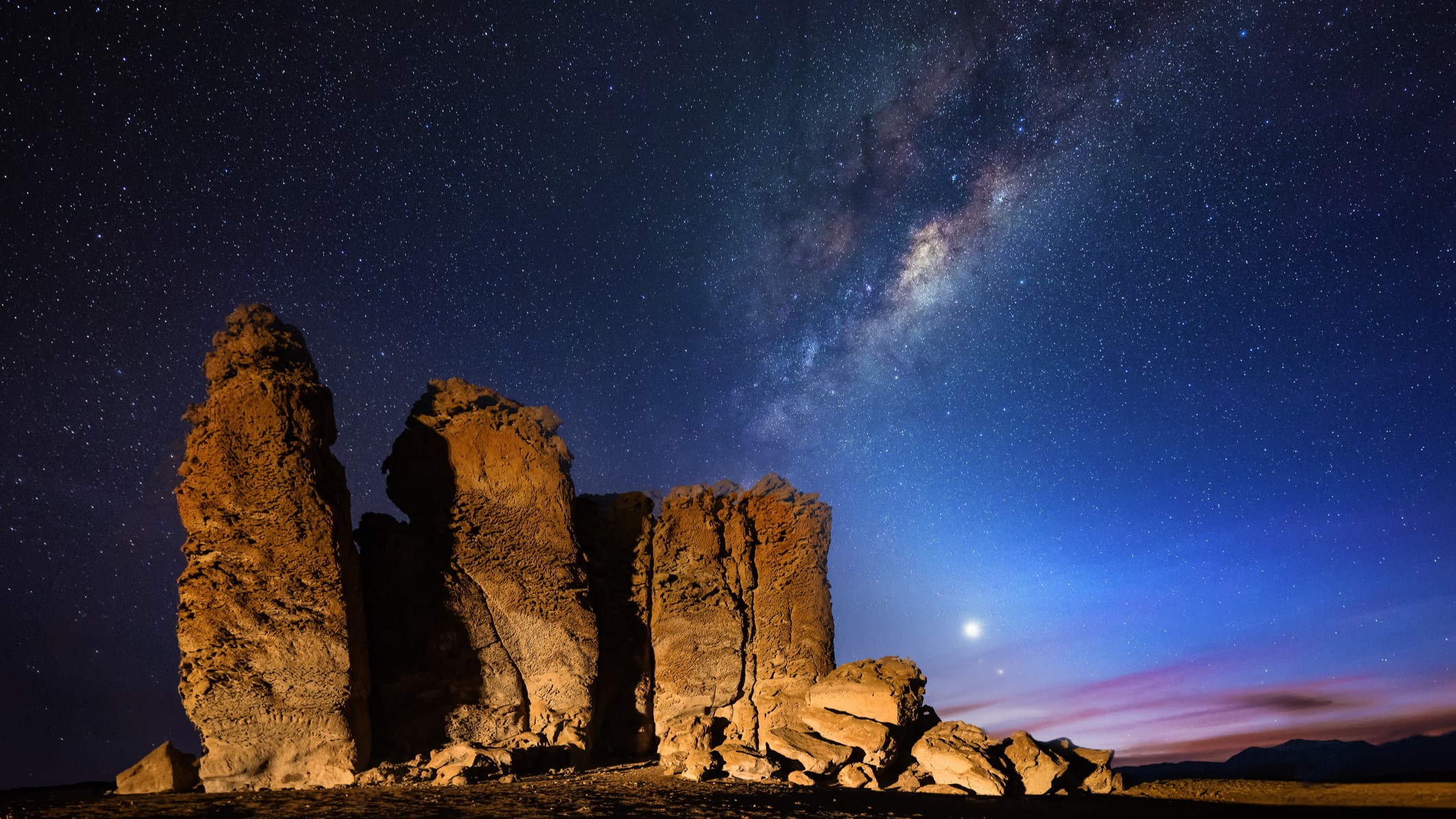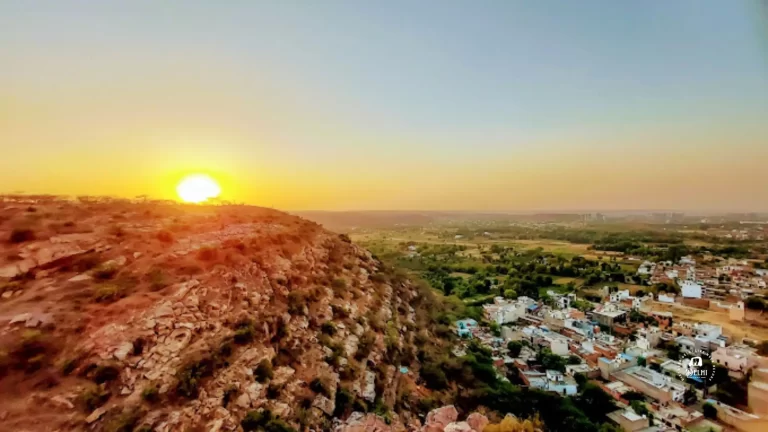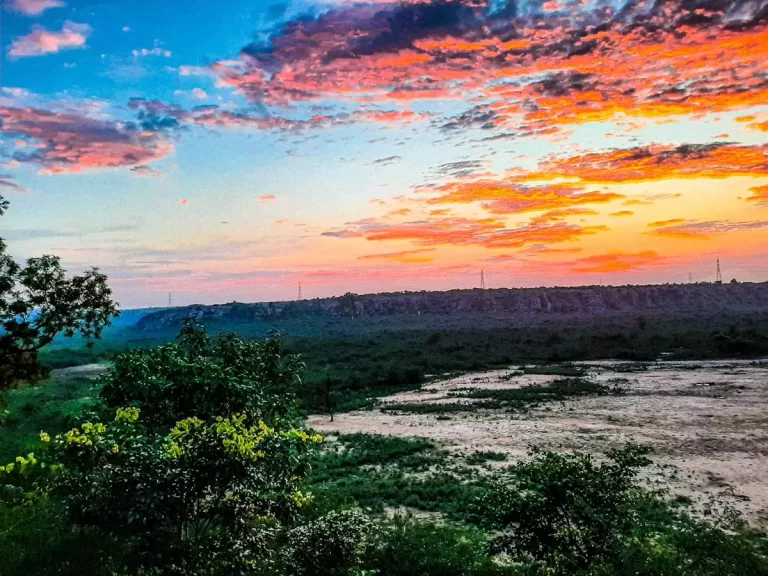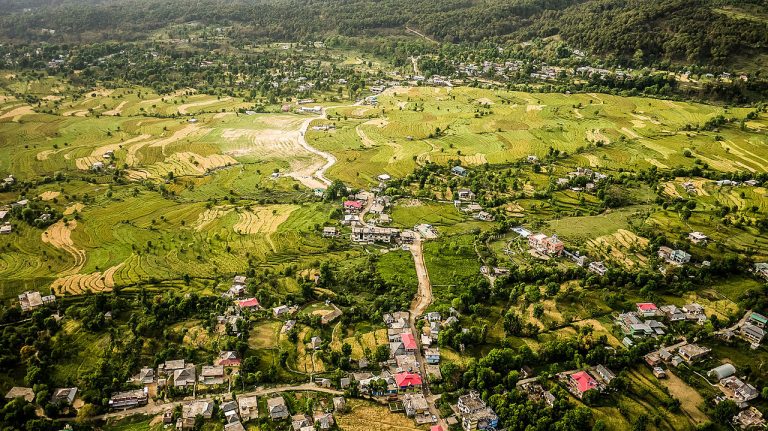Tired of the usual tourist traps and selfie-stuffed landmarks? If you’re craving adventure that feels truly out of this world, you’re in for a treat. Scattered across the globe are surreal, mind-bending destinations that seem plucked straight from science fiction.
These hidden wonders remain blissfully off the beaten path, offering jaw-dropping landscapes and eerie beauty that will make you question reality itself. Buckle up—we’re about to journey through ten extraordinary destinations on Earth that look like they belong on another planet.
1. Socotra Island, Yemen
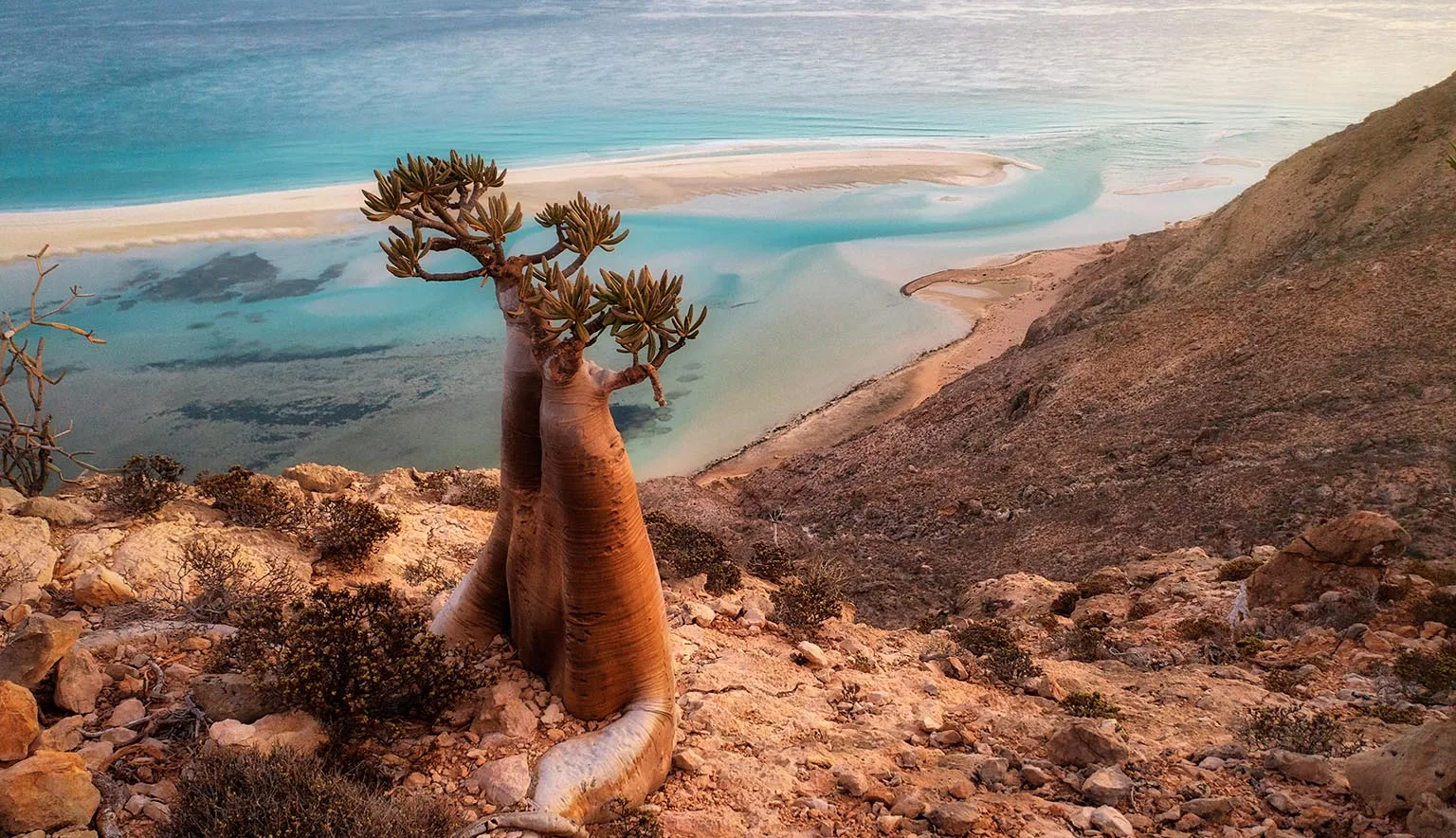
Alien Landscape
Socotra Island hosts over 700 endemic species found nowhere else on Earth. Alongside bottle-shaped desert rose trees, the terrain is dominated by the famous dragon blood trees with their umbrella-shaped canopies.
According to research published in the Journal of Biogeography, Socotra has been isolated for millions of years, allowing its unique ecosystem to evolve independently. The UNESCO World Heritage site features white sand beaches juxtaposed against surreal rock formations, creating an environment that resembles science fiction settings.
2. Danakil Depression, Ethiopia
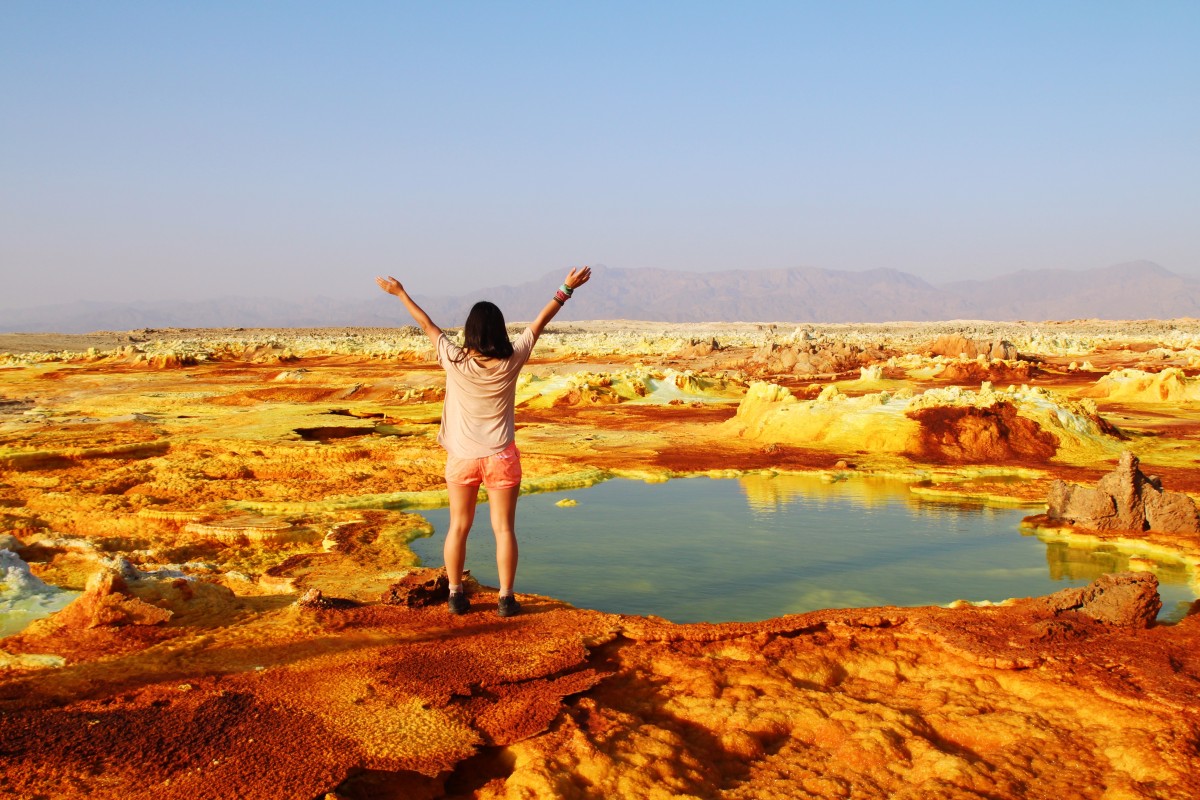
Extreme Environment
With temperatures regularly exceeding 50°C (122°F), the Danakil Depression is one of Earth’s hottest places. Its acid pools, sulfur springs, and salt formations create a psychedelic landscape of yellows, oranges, and greens.
Scientists from the European Space Agency study this region as an analog for potential environments on Mars. The salt flats stretch for miles, while geothermal activity creates bubbling pools that glow with unearthly colors.
3. Salar de Uyuni, Bolivia

Mirror to the Sky
During the rainy season, the world’s largest salt flat transforms into a perfect reflective surface that creates the illusion of walking among clouds.
Covering over 10,000 square kilometers, this prehistoric lake left behind a salt crust several meters thick. The hexagonal salt patterns stretch to the horizon, creating a surreal, minimalist landscape that’s particularly striking at sunrise and sunset.
4. Zhangye Danxia Landform, China
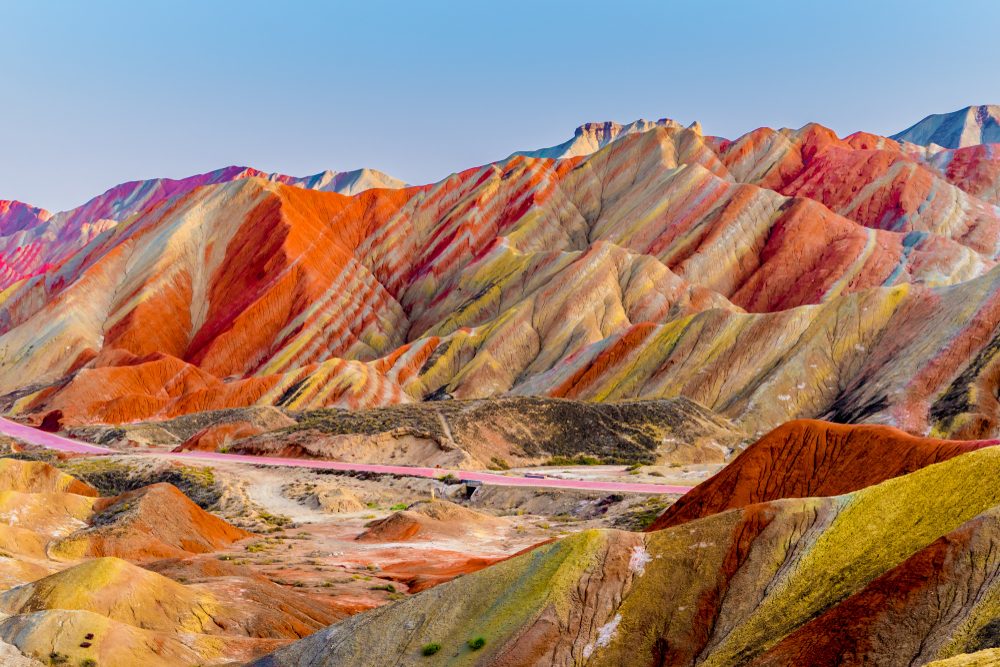
Rainbow Mountains
Millions of years of red sandstone and mineral deposits have created extraordinary striped mountains in vibrant shades of red, orange, yellow, and blue.
Geological studies show these formations developed over 24 million years as layers of different colored sandstone and minerals were pressed together and then eroded by wind and rain. The result is a rippling landscape that appears painted by an extraterrestrial artist.
5. Wadi Rum, Jordan

The Valley of the Moon
This red desert landscape served as the filming location for numerous Mars scenes in science fiction movies, including “The Martian.”
With massive sandstone mountains rising from the desert floor, natural stone arches, and narrow canyons, Wadi Rum’s terrain has been shaped by millions of years of geological forces. The red sand contains high iron oxide content, contributing to its Mars-like appearance.
6. Fly Geyser, Nevada, USA

Accidental Wonder
Created accidentally in 1964 when a geothermal energy company drilled a well, minerals from the water have continuously built up, forming colorful mounds that grow several inches each year.
The thermophilic algae thriving in the hot water create the vivid green and red colors that make this formation look like something from a science fiction film. The multiple geysers constantly spray water 5 feet into the air, creating small pools around the main formation.
7. Pamukkale, Turkey
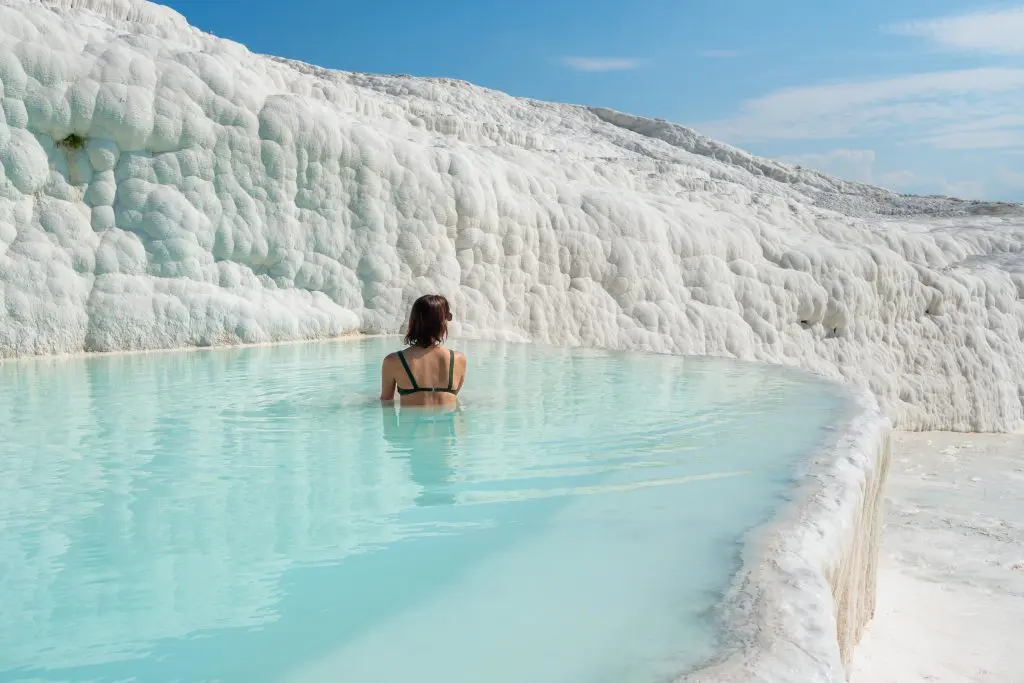
Cotton Castle
This natural site features terraced thermal pools with mineral-rich waters flowing down white travertine terraces.
The UNESCO World Heritage site formed when calcium-rich mineral water cascaded over the cliff edge, cooling and depositing calcium carbonate. Research from the University of Istanbul shows the water contains minerals believed to heal various skin conditions, drawing visitors for thousands of years.
8. Waitomo Glowworm Caves, New Zealand
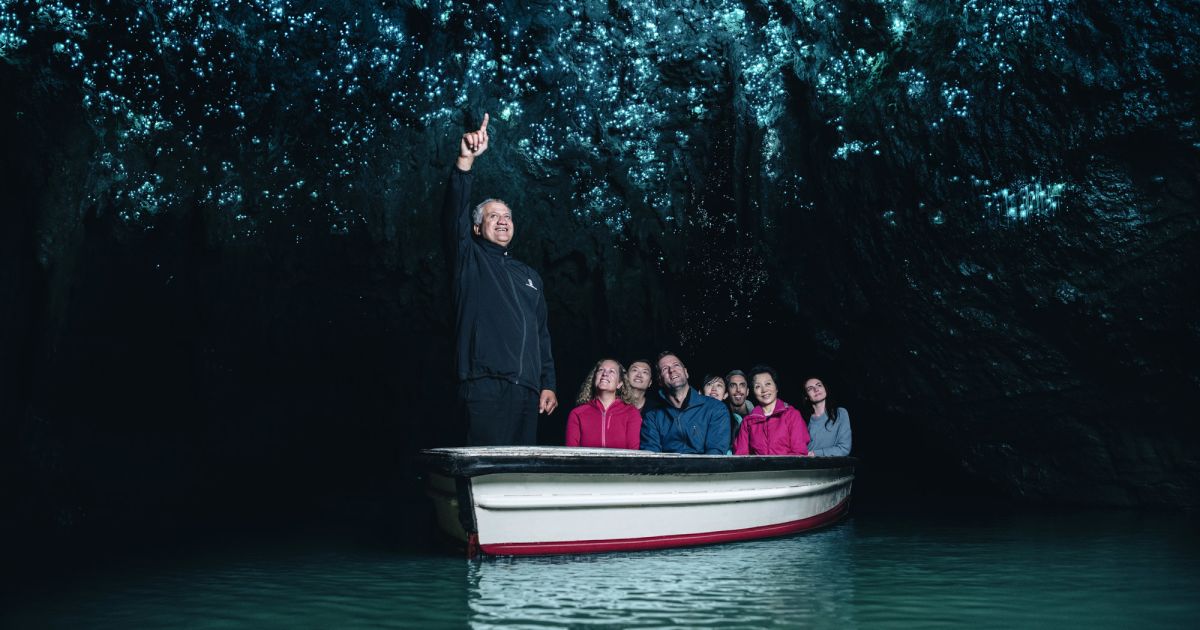
Living Stars
These caves are illuminated by thousands of glowworms that create a bioluminescent ceiling resembling a starry night sky.
Only in New Zealand do glowworms (Arachnocampa luminosa) exist. Scientists have documented how these larvae use their blue-green light to attract prey in the dark cave environment. Boat tours through the silent, glowing caverns create an experience similar to floating through space.
9. Spotted Lake (Kliluk), Canada
Healing Waters
During summer, water evaporates from this mineral-rich lake, leaving behind circular pools of concentrated minerals in different colors.
The Okanagan First Nations people have considered this a sacred healing site for centuries. Each pool contains different mineral concentrations, including calcium, sodium sulfates, and magnesium, creating distinct colors ranging from blue to green to yellow.
10. Deadvlei, Namibia

Ancient Clay Pan
This white clay pan is dotted with 900-year-old dead camel thorn trees, creating a stark contrast against the surrounding red dunes.
Research published in Nature Climate Change indicates these trees died when the climate changed, but the extreme aridity prevented them from decomposing. The resulting landscape—white clay, black trees, and red dunes under a blue sky—creates a surreal, almost painted appearance.
Planning Your Otherworldly Adventure
When visiting these remote locations, responsible tourism is essential. Many of these ecosystems are fragile and require special consideration. Always follow local guidelines, stay on designated paths, and leave no trace of your visit.
According to the World Tourism Organization, sustainable tourism to remote areas increased by 17% in 2023, showing growing interest in these planetary wonders.
Have you visited any of these extraordinary places? Share your experiences or let us know which destination has made it onto your bucket list!
FAQ
Q: What’s the best time of year to visit these destinations?
A: Each location has an optimal visiting season. For example, Salar de Uyuni is best seen during the rainy season (January-March) for the mirror effect, while the Danakil Depression is most accessible during the cooler months (November-February).
Q: Are these destinations difficult to access?
A: Many require special transportation arrangements or guided tours. Some, like Socotra and the Danakil Depression, may also have travel restrictions or require permits.
Q: Are these locations suitable for family travel?
A: Some destinations, like Pamukkale and Waitomo Caves, are family-friendly, while others, such as the Danakil Depression, present challenging conditions best suited for experienced travelers.

